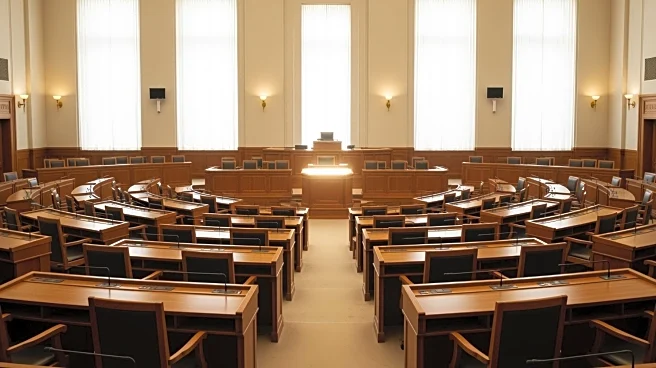What's Happening?
The World Bank has issued a call for Ghana to adopt a more self-reliant approach to its economic policies, moving away from its historical reliance on International Monetary Fund (IMF) loan-supported programs. In its latest Policy Notes titled 'Transforming Ghana in a Generation,' the World Bank emphasized the need for Ghana to implement fiscal discipline, sound governance, and structural reforms to achieve long-term economic transformation. The report highlights past governance failures characterized by fiscal indiscipline and inefficiency, which have led to repeated IMF interventions. The World Bank suggests that Ghana could sustain growth above 6.5 percent and triple its per capita income by 2050 if it adopts bold policies and strengthens institutions.
Why It's Important?
This advisory from the World Bank is significant as it underscores the need for Ghana to shift its economic strategy towards self-reliance, which could lead to sustainable macroeconomic stability. The reliance on IMF programs has been criticized for their short-term focus, which does not align with Ghana's long-term economic goals. By adopting the World Bank's recommendations, Ghana could potentially enhance its economic growth and improve its per capita income significantly by 2050. This shift could also attract investments in high-productivity sectors, thereby improving the country's business environment and building human capital through better education, health, and social protection systems.
What's Next?
Ghana is expected to consider the World Bank's recommendations and possibly implement policy reforms that focus on fiscal discipline and structural changes. These reforms could involve enhancing the business environment to attract investments and improving human capital development. The government may need to engage with various stakeholders, including businesses and civil society groups, to ensure successful implementation of these reforms. Monitoring and evaluation mechanisms might be established to track progress and make necessary adjustments to the policies.
Beyond the Headlines
The World Bank's call for Ghana to pursue self-reliance could have broader implications for other countries in the region that similarly rely on IMF programs. It raises questions about the effectiveness of international financial assistance and the need for countries to develop sustainable economic strategies. This development could also influence Ghana's political landscape, as leaders may need to navigate the challenges of implementing reforms while maintaining public support.










